[Text Retrieval] Negative Matters: Multi-Granularity Hard-Negative Synthesis and Anchor-Token-Aware Pooling for Enhanced Text Embeddings
[Text Retrieval] Negative Matters: Multi-Granularity Hard-Negative Synthesis and Anchor-Token-Aware Pooling for Enhanced Text Embeddings
- paper: https://aclanthology.org/2025.acl-long.1501.pdf
- github: X
- ACL 2025 accepted (인용수: 0회, ‘25-09-25 기준)
- downstream task: text Retrieval (MTEB)
1. Motivation
-
Hard negative sample을 잘 생성하는건 매우 어렵다.
- 의미적으로 다르면, 너무 쉬운 negative가 되거나, 너무 유사하여 false negative가 될수도 있다.
$\to$ LLM의 text similarity 순서를 선별하는 능력을 지렛대 삼아 보자!
-
sentence embedding을 추출하는데 2가지 방식이 자주 사용되는데, 각자 한계가 있다.
- 마지막
token 을 활용 $\to$ noisy 정보에 민감함 - last layer token들의 mean pooling $\to$ 핵심 정보를 희석하고, non-핵심 정보에 영향을 받게되어 optimal하지 않음
- 마지막
$\to$ anchor tokens (뒤에서 설명)에 큰 weight를 두어 text embedding을 추출하는 방법을 제안해보자!
2. Contribution
- Multi-Granularity Hard-negative를 생성하는 MGH framework을 제안함
- 장점; similarity level을 제약조건으로 두어, LLM에게 hard level을 controllable하게 생성하도록 유도함
- Anchor Token Aware (ATA) pooling 기반 text embedding을 추출하는 방법을 제안함
3. Negative Matters
-
Overall Architecture
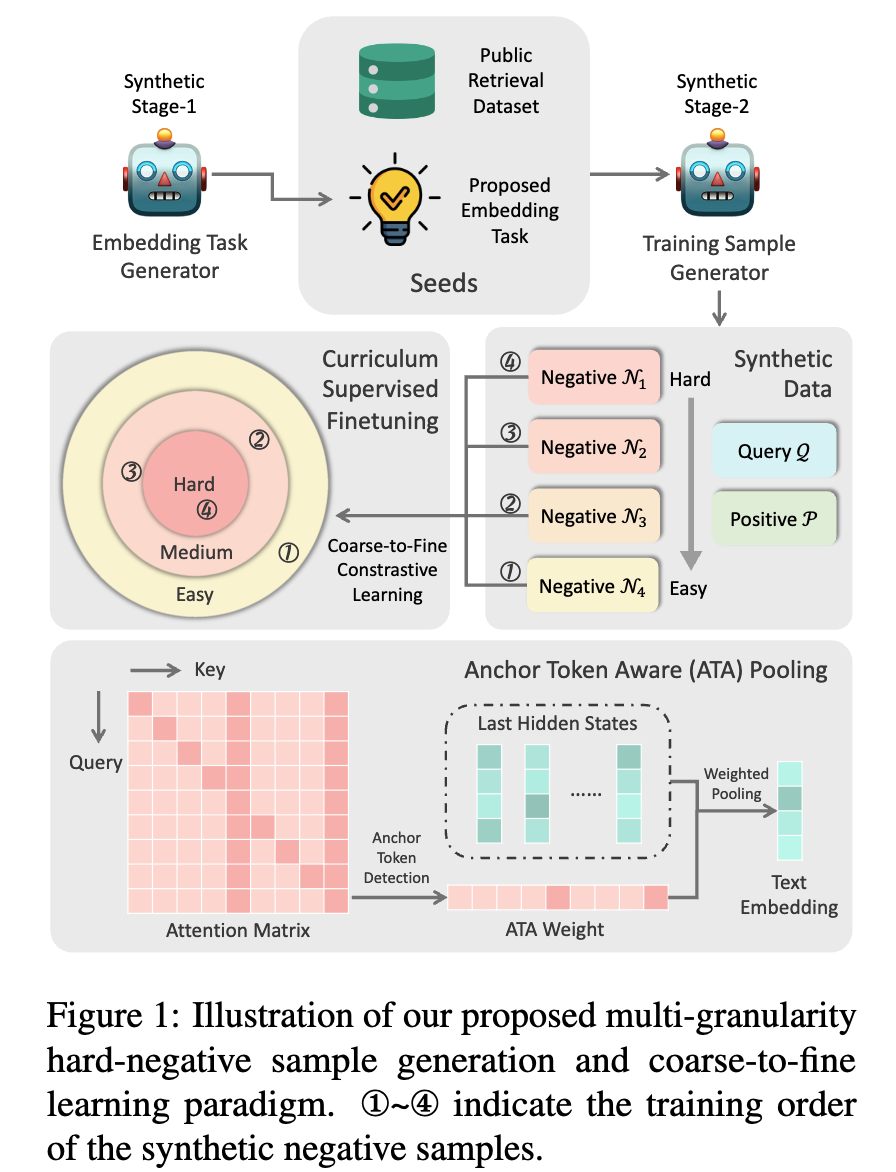
3.1 Multi-granularity Synthetic Data Generation
-
stage 1
-
2가지 타입 중 1개의 task를 선택하도록 함
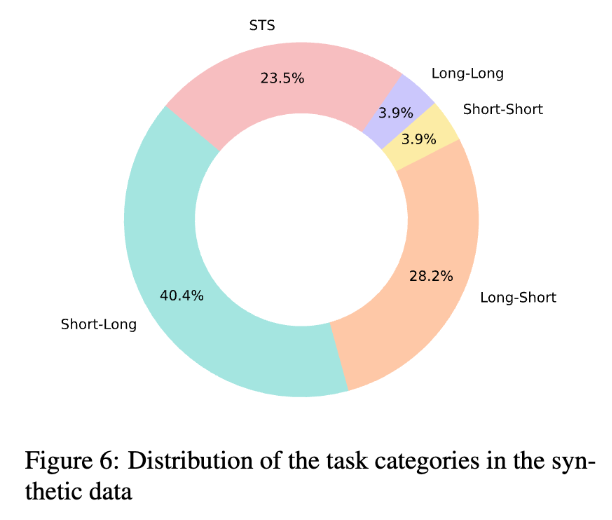
- Asymmetric text matching: query와 연관된 문장이나, 동일한 의미는 아님. 4가지 subtask로 구성됨
- long-long match (query-positive)
- long-short match
- short-short match
- shosrt-long match
- Symmetric text matching: query와 같은 의미의 문장을 paraphrase한 문장을 positive르 둠. Semantic Textual Similarity (STS) task
- Asymmetric text matching: query와 연관된 문장이나, 동일한 의미는 아님. 4가지 subtask로 구성됨
-
-
stage 2
-
stage 1에서 추출한 다양한 task를 seed로 하여 LLM에게 contrastive learning을 위한
(query, positive, negative)를 생성하도록 함-
InfoNCE Loss

-
Prompt
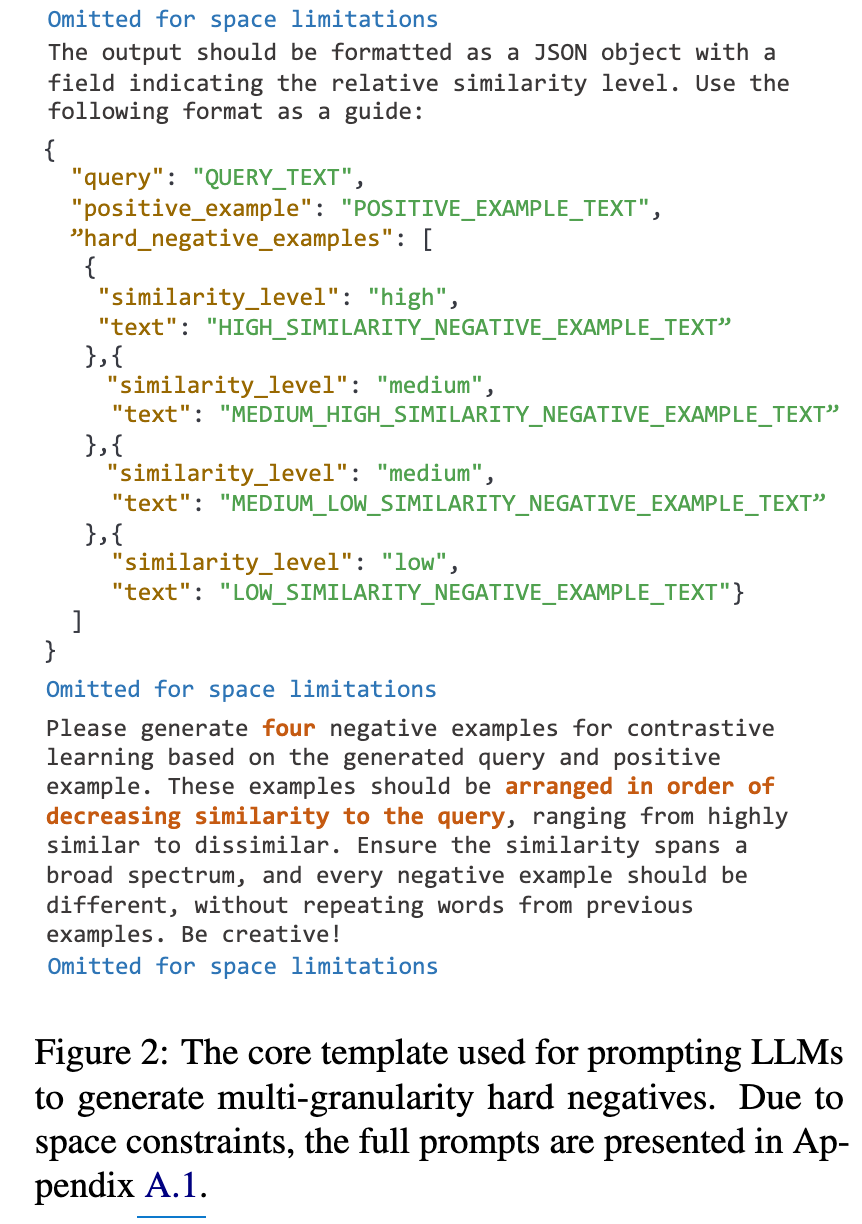
-
-
k=4개의 negative sample을 생성함 (hard = 1, medium = 2, easy = 1)

$\to$ Curriculum Learning에 사용함
-
Retrieval dataset도 사용함

-
3.2 Anchor Token Aware Pooling
-
text를 대표하는 embedding 추출을 위해 finaly layer의 hidden states tokens를 다룸
-
non-critical / critical token들에 대해 average pooling이 아닌, weighted pooling을 도입하고자 함
-
Attention weight를 Key 차원으로 나열하여 anchor token에 weight를 강하게 부여함


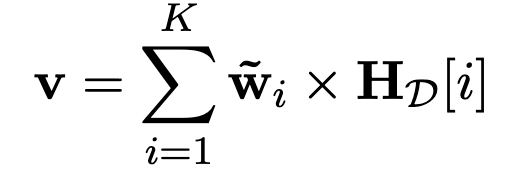
-
주로, 3가지 경우에 weight가 높음
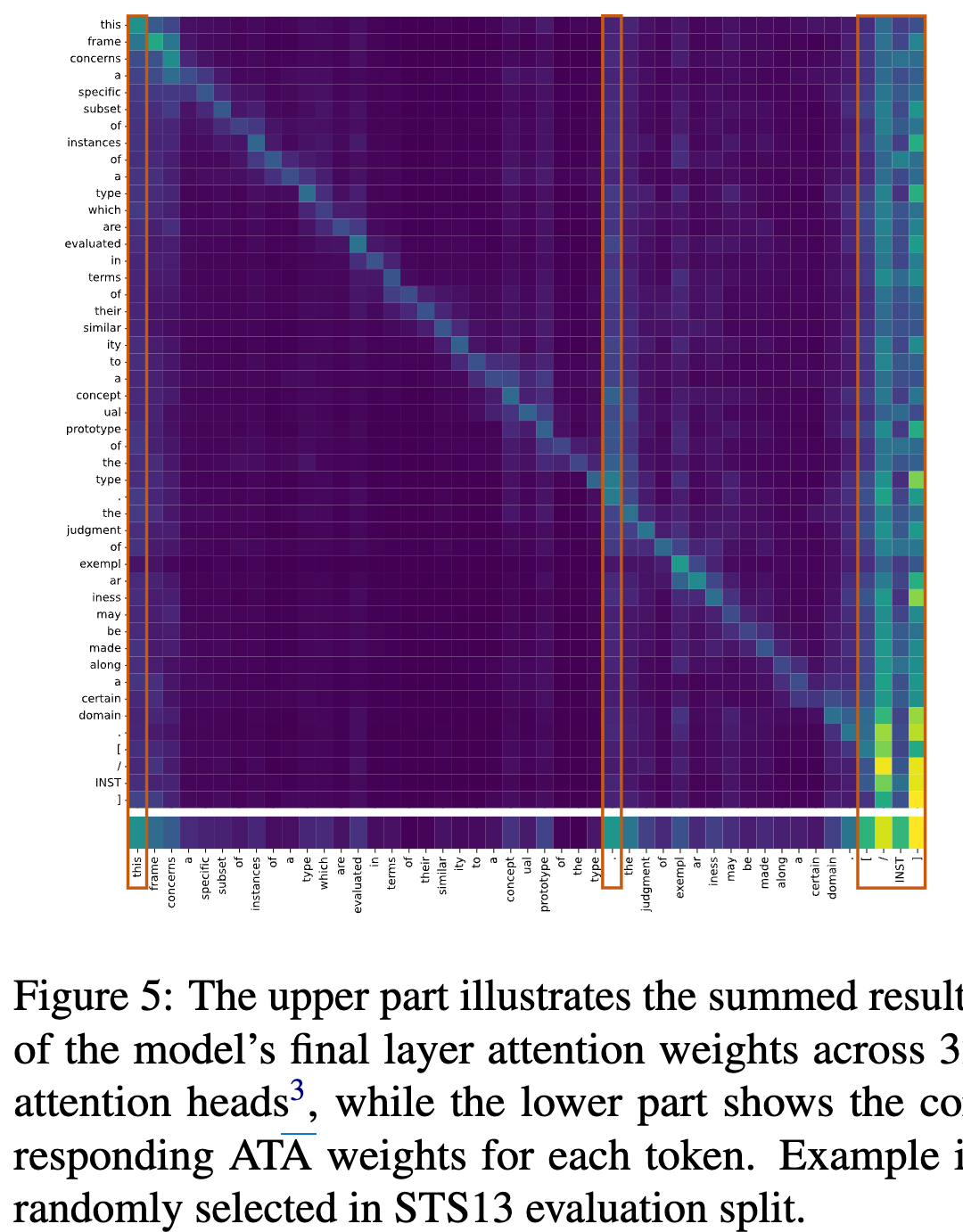
- 첫 단어
- Puncuation mark (.)
- 마지막 [INST] template token
-
-
4. Experiments
-
Data
- 데이터 생성 제약조건
- “Improving text embeddings with large language models” 논문과 형평성을 맞추기 위해 180M token의 data만 생성 (대략 0.9M samples?)
- GPT-4o가 DeepSeek-V2보다 다양한 negative sample생성하여, GPT-4o를 사용
- retrieval dataset
- “Representation improves language model embeddings”에서 사용한 1.5m samples을 학습에 활용
- 데이터 생성 제약조건
-
Model
- baseline: LLM2vec (Mistral-7B-Instruct-v0.2 + LoRA)
-
Hyperparameters
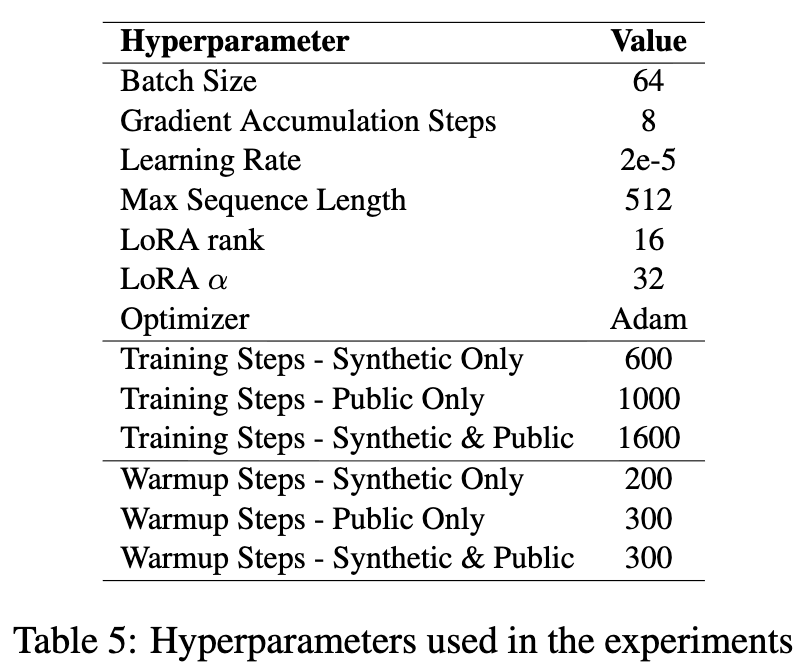
- full-training (synthetic data + retrieval data) = 1,600 step
- Retrieval data = 1,000 step
-
정량적 결과
-
Full-training
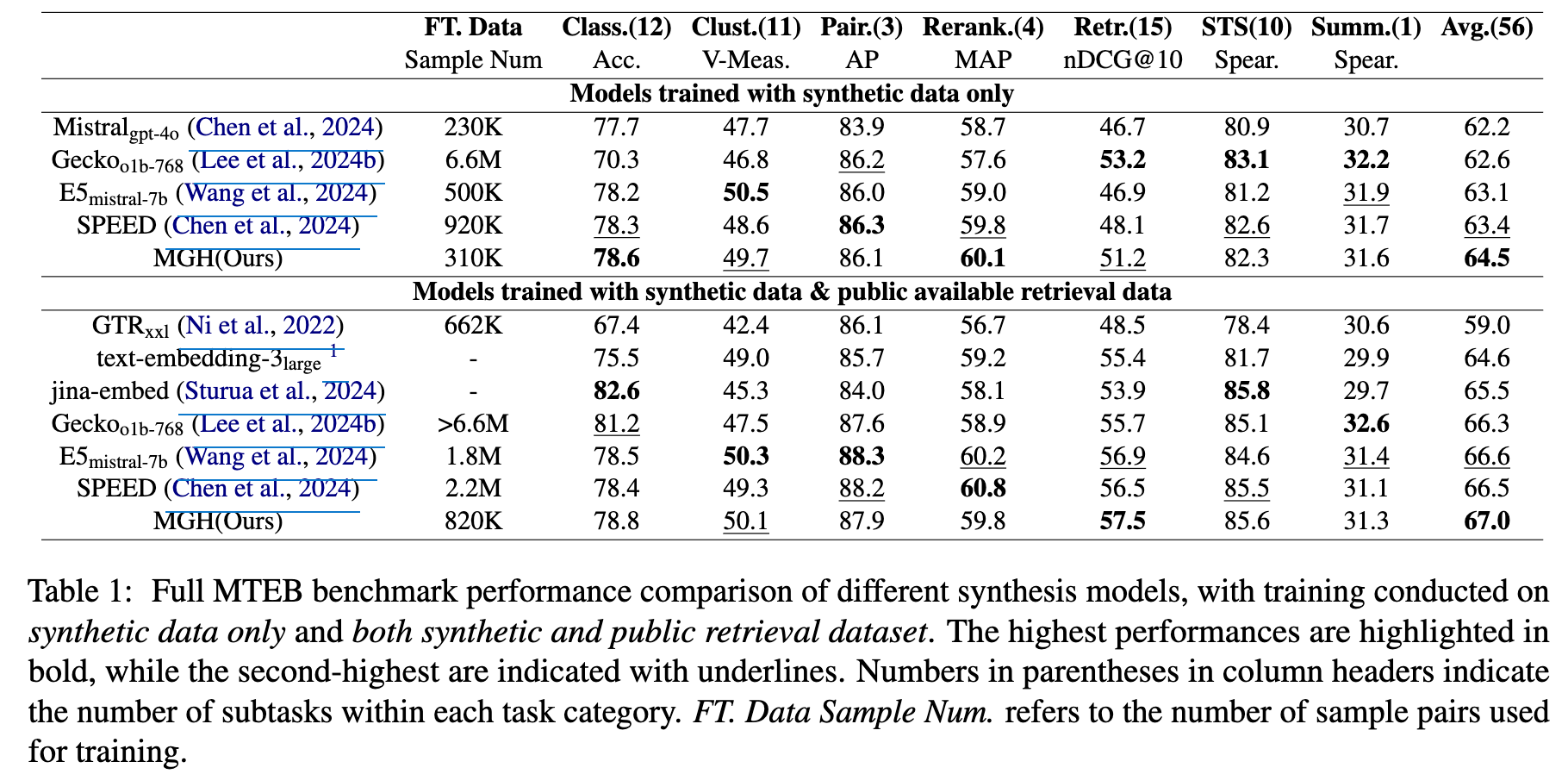
-
Retrieval only
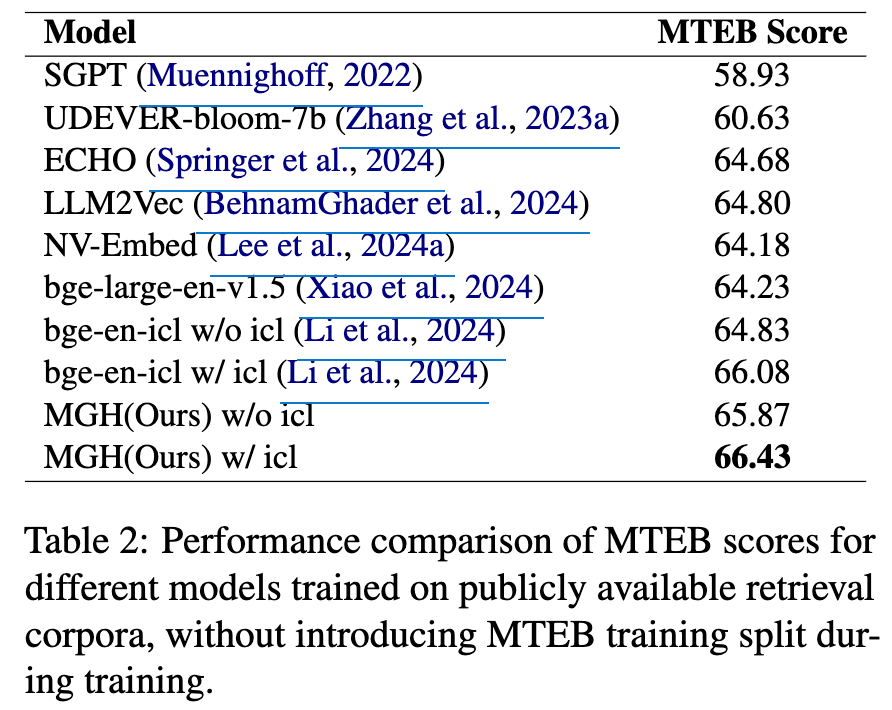
-
-
Ablation Studies
-
학습 전략 (Curriculum vs. 기타)에 따른 성능 분석
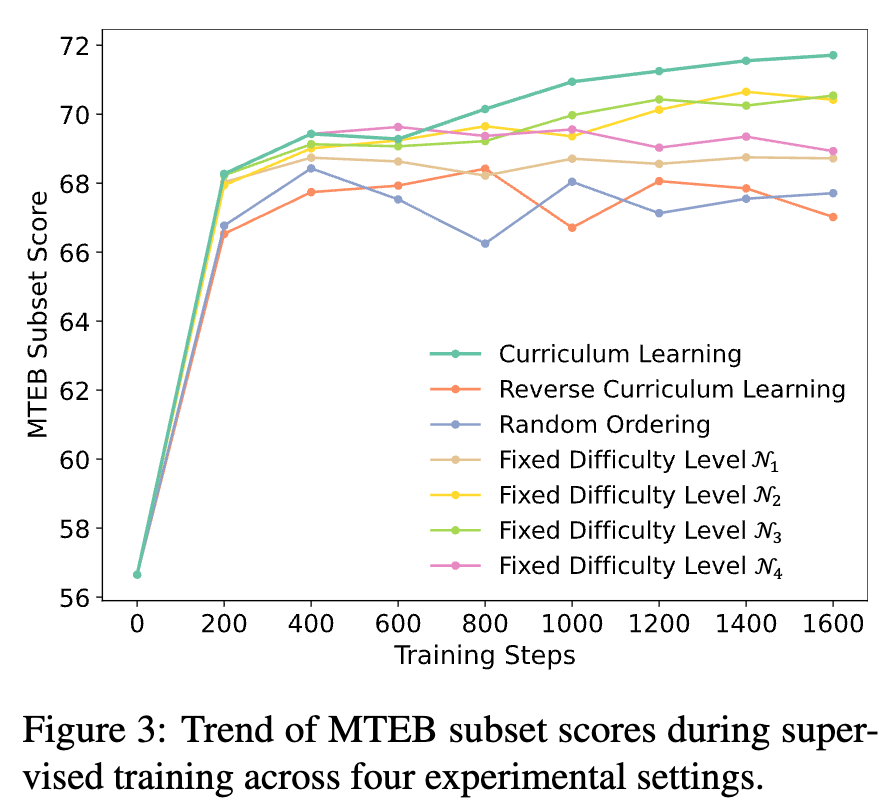
- 성능: Curriculum Learning (쉬운것 $\to$ 어려운 것) > Level-2 == Level-3 > Level4 == Level-1 > Random > Reverse
-
Pooling 방식에 따른 성능분석
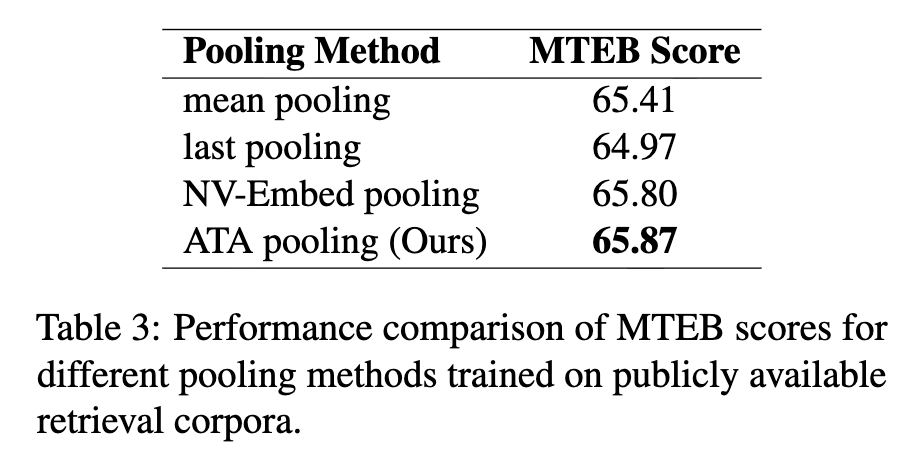
-
정말 Hard example이 Easy example보다 positive sample에 대해 유사도가 높은가??
- 정량적 지표 $\to$ Retrieval-only 로 학습한 모델로 유사도 계산
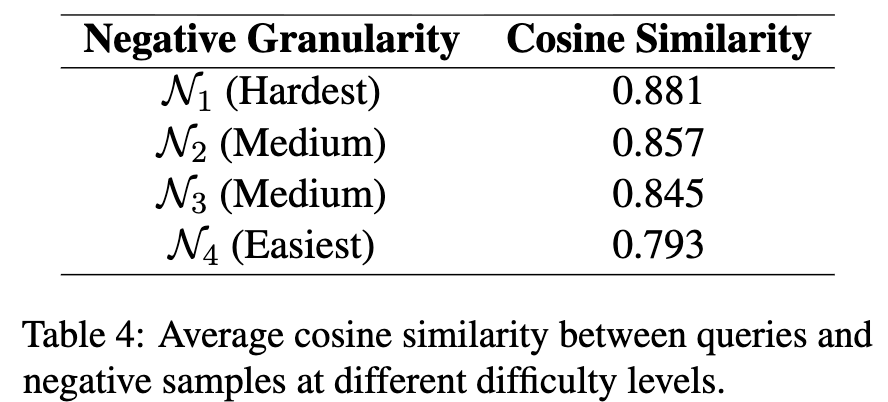
-
정성적 지표 $\to$ 실제 예시를 보면 맞다.
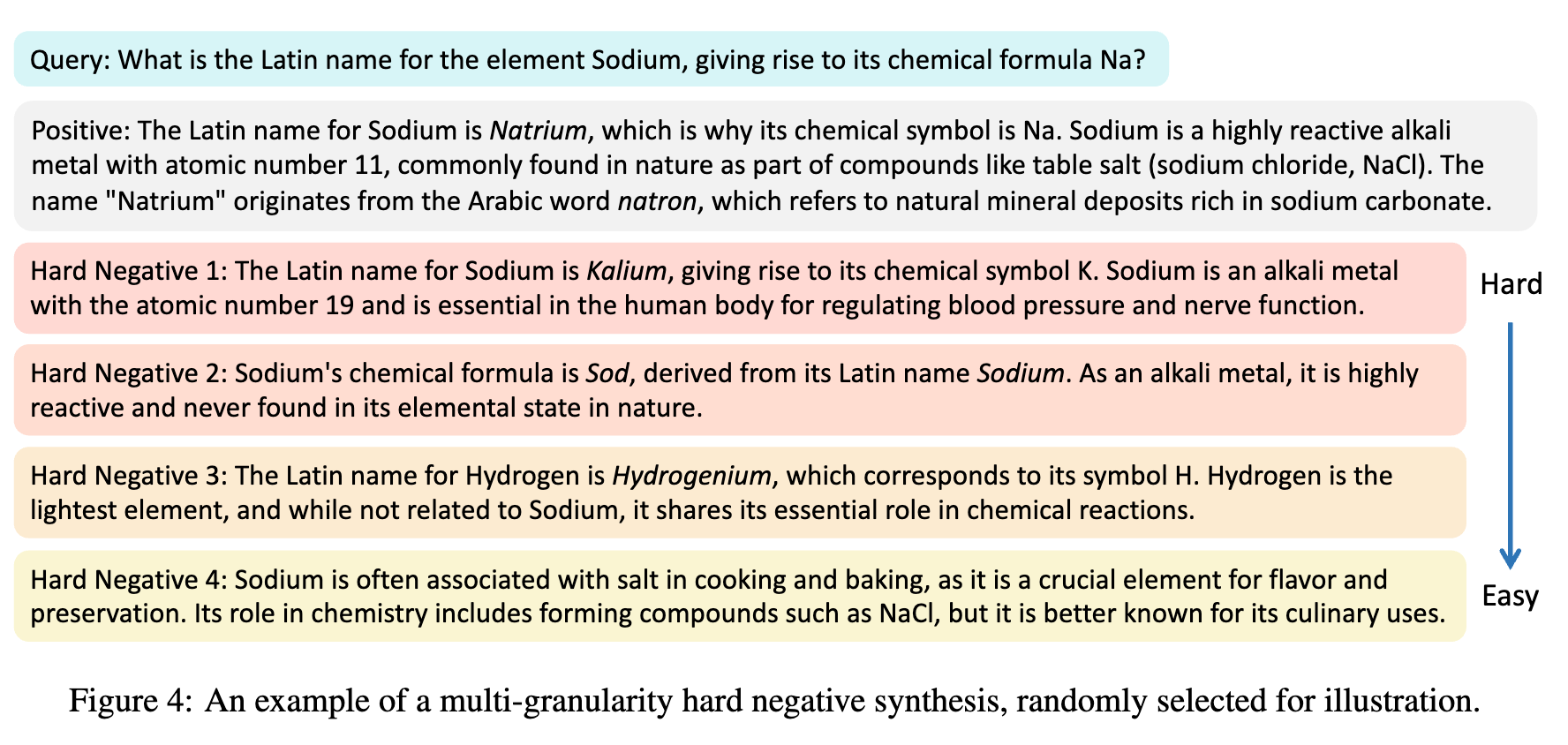
-